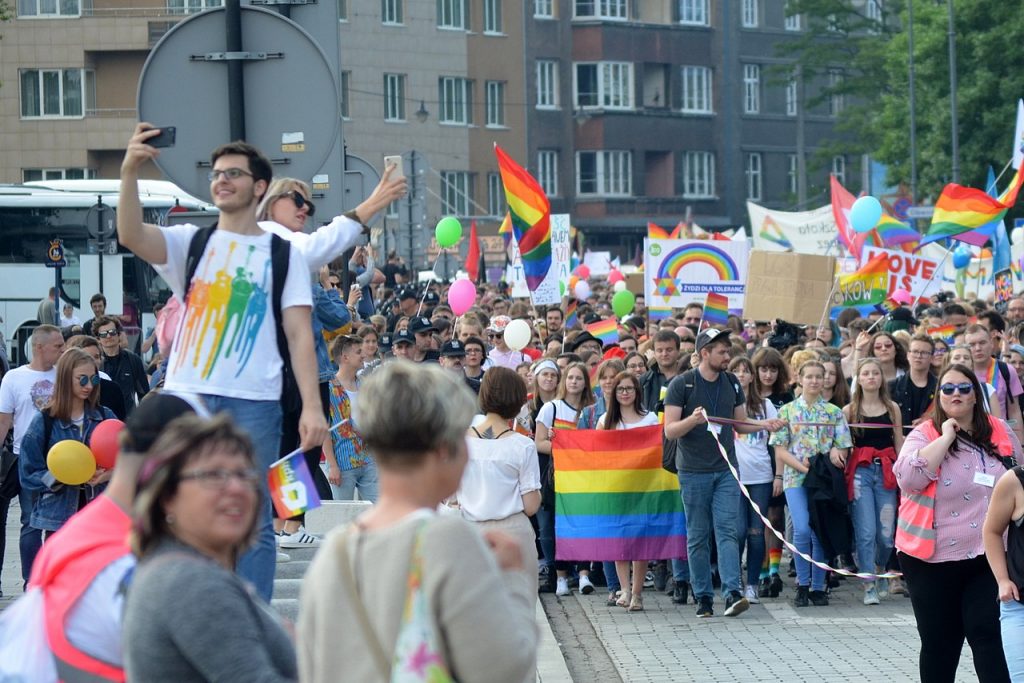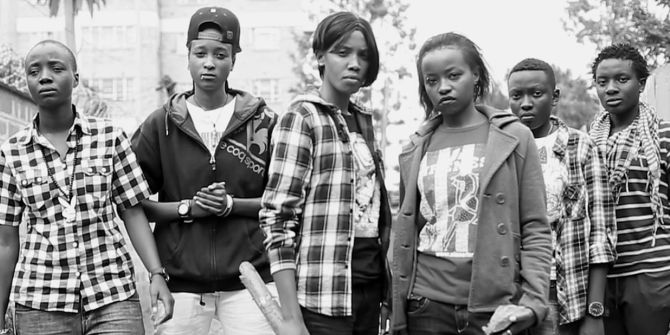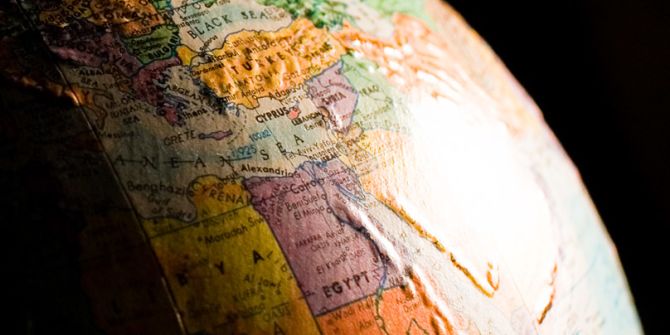Months into the COVID-19 pandemic, Pope Francis published Fratelli Tutti, an encyclical that presented a post-pandemic blueprint for a world that values human dignity. In Poland, a country where 87% of people are Roman Catholic, the timing of this encyclical roughly coincided with the establishment of LGBT-free zones, or areas where LGBT events are banned. In this post, LSE MSc student Didier Müller explores the tension between these two developments in the overwhelmingly Catholic country.

On the fourth of October 2020, Pope Francis presented to the world “Fratelli Tutti”, a new encyclical centred on “fraternity and social friendship”. Its message, one of solidarity and “transcending borders”, was welcomed by many, particularly among those healing from the divisions exacerbated by the COVID pandemic. That same year, in a country with extremely close ties to the church, another document was starting to take form, one that rejected “LGBT Ideology” and called for the widespread implementation of “LGBT-free zones”.
For the past month I have been meeting LGBT+ organisations and activists in Poland. Their story is one of hope and exhaustion. Their mission, as one activist told me, is to break through the information war being launched by the ruling PiS government (Law and Justice) and draw international attention to a deteriorating situation. According to an “Atlas of Hate” map, an area greater than the size of Hungary has effectively become an “LGBT-free zone”, meaning one third of Poland is no longer willing to accept the presence of the LGBT+ community. One of the activists responsible for this map tells me this process could have been stopped if they were only quicker to respond. I cannot help but sense some guilt in their tone.
The fact of the matter is that no single action could have prevented the current situation; it had been in the works for a long time. The term “LGBT-free zone” entered Polish political discourse as a crass marketing stunt. In July 2019, the slogan was featured on a free sticker given away with the weekly edition of Gazeta Polska, a pro-government tabloid known for its ultra-conservative views. And while the sticker campaign came to an end, thanks to a lawsuit brought by LGBT activist Bart Staszewski, the phrase “LGBT- free zone” assumed a life of its own.
Since 2019, over 100 towns and regions across Poland have passed resolutions calling for an end to “LGBT ideology” and a return to “traditional Polish values”. And while their content is largely symbolic, opposition leaders, LGBT activists and European human rights bodies have provided evidence to suggest it has directly discouraged local authorities from supporting LGBT rights while encouraging hate speech and violence against LGBT individuals. The government has responded to criticism by implying the declarations cannot be discriminatory because they refer to “LGBT ideology” rather than LGBT people, even stepping in to fund “LGBT-free” towns whose applications for European Union funding were denied.
Among those offering their support to “LGBT-free zones” is the Catholic church. Poland is a country steeped in the Catholic faith. Around nine in ten Poles identify as Roman Catholics, with around 40% attending mass weekly. It is, as one of my interviewees put it, the ally you would want when in a political storm. So when Marek Jędraszewski, the archbishop of Krakow, got up at the 75th anniversary of the Warsaw Uprising and spoke of a “rainbow plague” that wants to control “our souls, our hearts and our minds”, local LGBT organisations started to fear the worst.
But it has not just been the LGBT+ community; women have also come into conflict with the church. After a ruling by Poland’s Constitutional Tribunal, which overturned a 1993 law allowing abortions in cases of foetal abnormalities, waves of protest took hold in a country with already one of the strictest abortion laws in the EU. Many of these protestors, for the first time in the country’s history, took directly to the home of the church to express their anger at an institution which has long pushed for tighter regulations. Martha Kolodziejska, a sociologist from the Polish Academy of Sciences, says this is something “very different” and will have the power to change the course Polish politics, making it okay for women to stand up against the big powers.
But for now, power in Poland seems to be staying in the same hands and with the same institutions. Exactly what that means for the activists who spoke to me remains to be seen. For many, their time in their own homeland was either coming to an end or already up. Events such as Bialystok Equality march or the arrest of LGBT+ rights campaigner Margot Szutowicz were seen as the last straw among many. One organiser tells me, “It is now at the point where simply existing as a queer person in Poland is a form of open protest”.
In this hostile environment, it is hard not to question the impact of “Fratelli Tutti”. The image Francis paints of a church built on the foundations of “love, justice and solidarity” is a distant and unimaginable concept to those living in fear of the church in Poland. At the same time, when LGBT+ activists rally alongside women’s rights campaigners in Warsaw and when opposition MP’s stand outside Poland’s parliament dressed in colours of the LGBT+ flag, I am beginning to picture the politics “Fratelli tutti” demands.
Note: This piece gives the views of the author, and not the position of the LSE Religion and Global Society blog, nor of the London School of Economics.
Note: This piece was originally published for the Centre for Catholic Social Thought and Practice.





